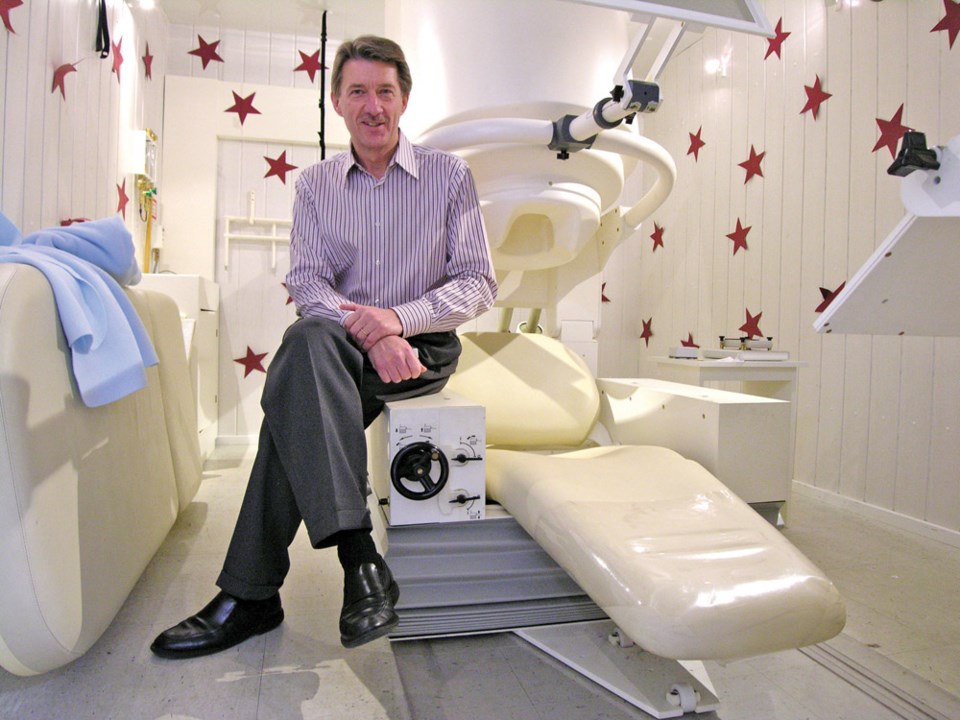Burnaby’s Down Syndrome Foundation is losing its multimillion-dollar brain scanner to a new high-tech lab at Surrey Memorial Hospital.
The foundation, which co-owned the magnetoencephalography (MEG) scanner with Simon Fraser University, sold its majority-shares in March of 2014, making SFU the sole owner.
“The MEG scanner is currently shut-down, in the process of being upgraded and then to be installed at Surrey Hospital sometime later this year,” said SFU professor Urs Ribary, an internationally known Swiss neuroscientist and B.C.’s LEEF Leadership Chair of Cognitive Neuroscience in Childhood Health and Development.
The MEG scanner measures the magnetic fields that occur in the brain when neurons fire with millisecond accuracy. It’s destined for a new “ImageTech” lab at Surrey Memorial that will also house an MRI machine.
Dawn McKenna, executive director at the Down Syndrome Research Foundation, was happy the scanner will go to good use.
“I think it’s great. It was a big bold move on our part to invest in such state-of-the-art technology. We did glean some knowledge from it but just couldn’t fund the costs of operations to make it effective,” she said. “It really should be in a research and clinical setting, and the ImageTech lab at Surrey Memorial Hospital is going to be a fabulous site for continuing translational research into a variety of areas. We are hopeful that insights into the Down syndrome population will be forthcoming.”
The Down Syndrome Research Foundation has housed the scanner in its basement on Sperling Avenue since 2005, but it was too expensive to run fulltime, McKenna explained.
It costs about $250,000 to $300,000 a year to operate, which includes staff and helium to cool the sensors.
The foundation raised $3 million to buy the $2.2-million scanner and build a special room for it. The foundation used it for cognitive research and leased out time to other researchers. It is still the only scanner of its kind this side of Toronto.



